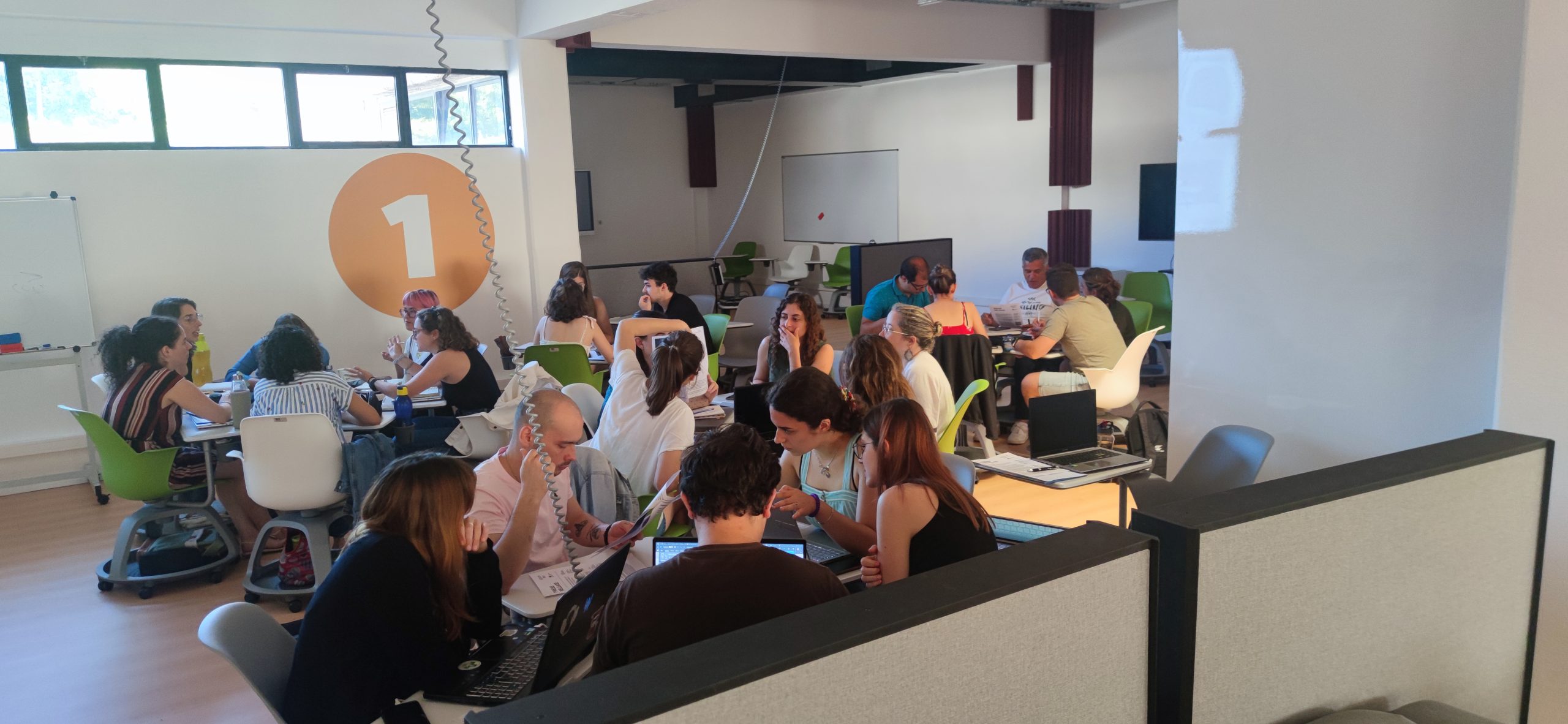Between July 10th and 14th, the 7th edition of the Advanced Course on Scientific Writing and Communication took place at the University of Aveiro. The 2023 edition was jointly organized by the Center for Environmental and Marine Studies (CESAM), the Department of Biology at the University of Aveiro (DBIO), and the Faculty of Dental Medicine of the Portuguese Catholic University (UCP).
“This edition, in which we celebrate the tenth anniversary of the course, holds special significance: after 10 years, we realize that the training needs in science communication (in all its aspects) are growing, and our researchers are increasingly interested in better communicating the excellent science they develop not only to their peers but also to increasingly diverse audiences,” says Ana Cristina Esteves, one of the organizers of this advanced course.
Having filled up months before the deadline, the course had 25 participants from different cities and organizations. Over five days, these participants interacted with various experts and explored different tools to develop skills in both scientific writing and communication with the non-specialized public. According to Ana Sofia Duarte from the Portuguese Catholic University (UCP), also a member of the organizing team, “the course’s main goal is to respond to the needs felt by our researchers (from students in the early stages of training to doctoral researchers) to actively contribute to society. So, what we provide them with is a range of tools they can use to communicate their science. We include sessions on the more formal side of communication, such as writing scientific papers, to communication with non-specialized audiences.”
In the program component more focused on scientific writing, Isabel Henriques (University of Coimbra), Paula Fonseca (Polytechnic Institute of Viseu), Ana Sofia Duarte (UCP), Ana Cristina Esteves, and Joana Pereira (CESAM/DBIO) covered topics related to bibliometrics, writing, and reviewing scientific articles. In the component with a greater focus on oral communication and the use of visual elements, Marta Tacão (CESAM/DBIO), Sara Costa (UCP), Norberto Amaral (CULTIV), Manuel Valença (CESAM), Renata Pinto (PR INFLUENCER), and Miguel Leal (CESAM & Science Crunchers) discussed the importance of verbal and nonverbal communication, the specifics of the relationship between researchers and the national media ecosystem (journalists, media outlets, social networks, communication offices, and companies), as well as the production of scientific posters and graphic abstracts.
Two of the sessions in the program were also open to all interested parties: “Disinformation and Pseudoscience” by Diana Barbosa (New University of Lisbon) and the roundtable “Science Communication for Children and Youth” with Anna Moura (UCP), Inês Ferreira Guedes (Centro de Ciência Viva Lagos), Joana Bordalo (Native Scientists), Ana Hilário, and Sofia Ramalho (CESAM/DBIO).
As one of the students noted in the anonymous survey conducted at the end of the course, “I really enjoyed it. I wouldn’t change anything. The topics are very important and will certainly change the way I do things. I learned a lot.”
Given the interest and positive reception that this course has received from participants, “we are already preparing for the next edition: in addition to the basic topics that are always offered in this course, we always try to bring in new topics and new guests, making sure that some of the sessions are open to the academic community,” concludes Marta Tacão, a member of the organizing team for this advanced course.
Text by: CESAM in collaboration with Ana Cristina Esteves (CESAM/DBIO), Marta Tacão (CESAM/DBIO), and Ana Sofia Duarte (UCP).
